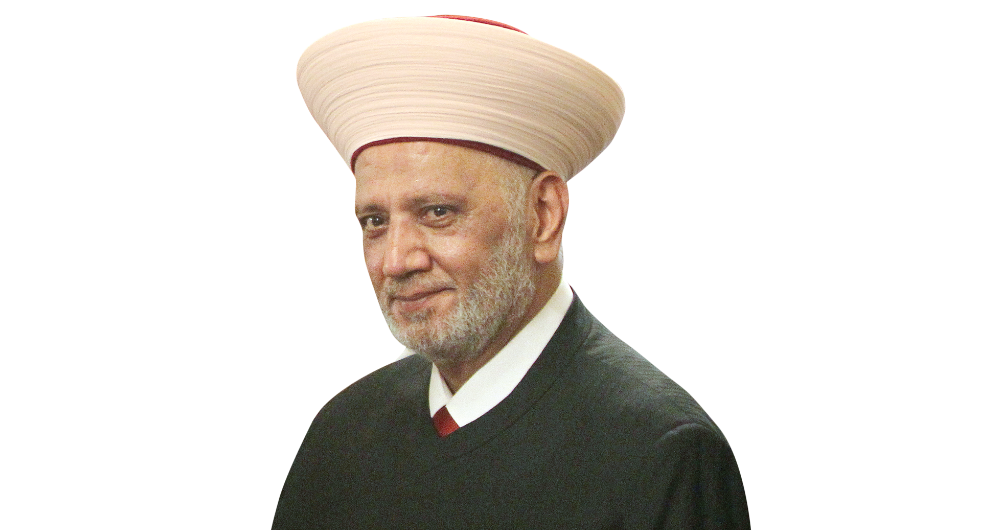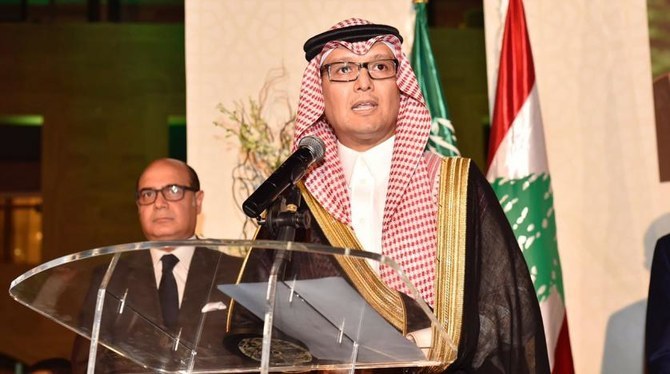BEIRUT: The Kingdom rejects attempts to use Islam as a shield for political purposes fueling hatred, extremism, and terrorism, Saudi Arabia’s ambassador to Lebanon Walid Bukhari said on Monday.
His remarks followed his meeting with Lebanon’s Grand Mufti Sheikh Abdel Latif Derian.
Derian was one of the most prominent figures of national unity in Lebanon and the Kingdom was keen on respecting all Islamic and Christian figures and positions as they were entrusted with the unity, Arabism, and coexistence of Lebanon, he added.
He also said the Kingdom supported promoting unity and rapprochement between the Lebanese.
His visit to Dar Al-Fatwa coincided with criticism of a statement from Iran’s ambassador to Lebanon, Mojtaba Amani, during his visit to Derian last week.
Amani described him as “the mufti of Sunnis” instead of his official title “the grand mufti of Lebanon.”
According to a Dar Al-Fatwa source, it is the first time a diplomat has made such a mistake.
The faux pas came amid a time of high political tension in Lebanon between Hezbollah and its allies and those calling for Lebanon’s sovereignty and the exit of Iran.
Political figures condemned the ambassador’s mistake, saying he had reduced Derian’s role “and his speech is meant to cause strife.”
According to Lebanese laws, the grand mufti is the direct president of all Muslim scholars and the supreme reference for Islamic endowments.
He performs all the powers granted to him under the laws and Islamic regulations.
He also meets all local muftis across Lebanon to look into the religious and social conditions of Muslims in their regions and provide scholars with the necessary instructions.
Dr. Mohammed Al-Sammak, secretary-general of the Islamic-Christian Dialogue Committee, told Arab News that the grand mufti was considered the first official religious reference in Lebanon.
According to Al-Sammak, the Iranian ambassador corrected his mistake but was late in doing so and in handling the chaos caused, adding that he did it after many political and religious figures had condemned his statement.
The Iranian diplomat clarified two days after his visit to Dar Al-Fatwa that Iran “is keen on maintaining Islamic unity and respecting all religious references.”

Lebanon’s Grand Mufti Sheikh Abdel Latif Derian. (AFP)
He added: “We have a good fraternal relation with Sheikh Abdel Latif Derian that reflects authentic Islamic and national values. This relation cannot be strained by those who misinterpreted what was said without taking into consideration the meaning and the essence.”
After meeting Bukhari, Derian praised the efforts of Saudi Arabia in strengthening and deepening the culture of moderation, supporting the affairs of the Islamic and Arab worlds, and upholding justice and fairness in the world.
He also praised the role of the Kingdom — led by King Salman and Crown Prince Mohammed bin Salman — in supporting Islamic and Arab affairs, as well as the special attention given to Lebanon and its keenness on ensuring the safety, security, and stability of Lebanon and the Lebanese.
Lebanon’s Supreme Shariah Council, which held a meeting last Saturday that was presided over by Derian, allocated a part of its statement to call on King Salman, the Saudi crown prince, and the Gulf Cooperation Council to stand by Lebanon and not give up on it during its crisis.
The council said Lebanon was of Arab nationality and affiliation and would always be with its Arab brothers.
Imad Al-Hout MP, from the Islamic Group, was among those who called on the Iranian ambassador to apologize for his “intentional or unintentional mistake.”
Mohammed Sleiman MP said: “The Iranian diplomacy fell in the trap of its own actions adopted to divide the Lebanese people.”
He said Dar Al-Fatwa and its mufti could not be subjected to division nor represent only a segment of the Lebanese and Muslims.
He added: “Your apology cannot amend your statements as long as your actions show that you seek to divide people based on their religions and confessions to create discord between the people of the same country.”
Caretaker Interior Minister Bassam Mawlawi stressed the importance of security amid the difficult circumstances that Lebanon was enduring.
He warned of prison overcrowding and lack of discipline, revealing that rigorous inspection operations had been carried out in the buildings of the Central Roumieh Prison since Sunday.
Cellphones and knives manufactured inside the prison had been found, and he called on inmates to be patient and for the judiciary to accelerate the prosecution process.
He said about 79 percent of prisoners had yet to be sentenced and that 43 percent of prisoners were foreign.
Lebanon's number of inmates is three times greater than the capacity of its prisons, which created pressure amid the depreciation of the national currency and increased the ministerial burden, he said.

























